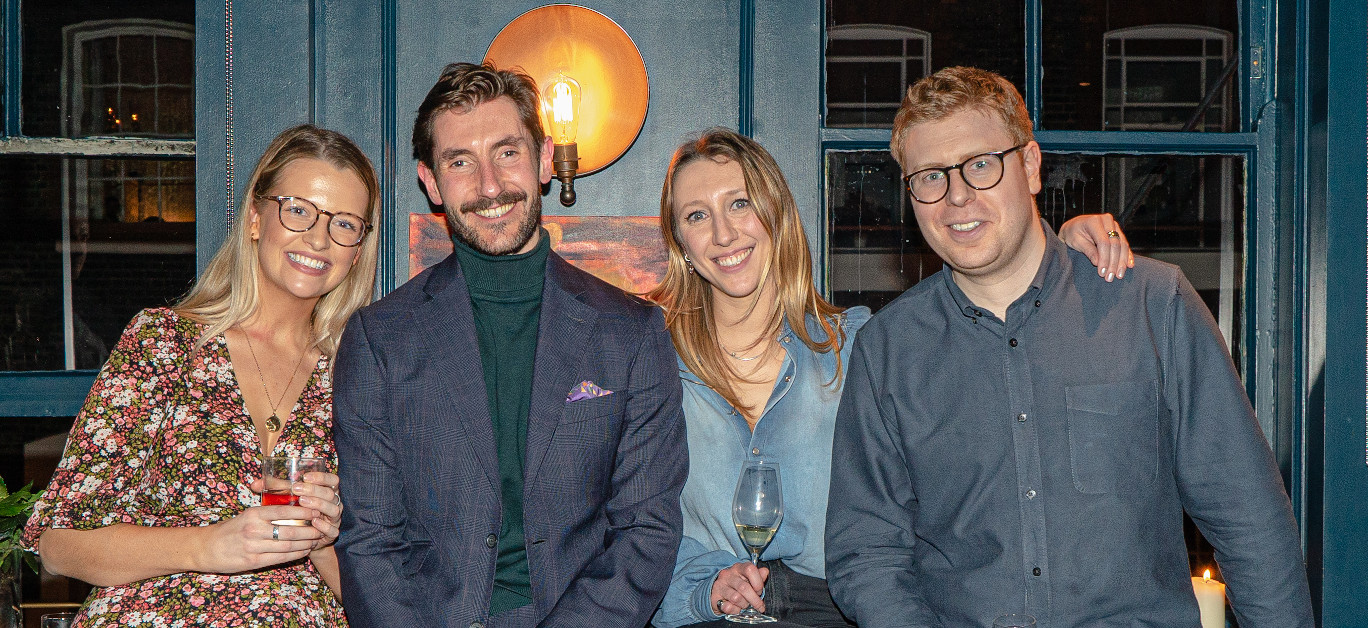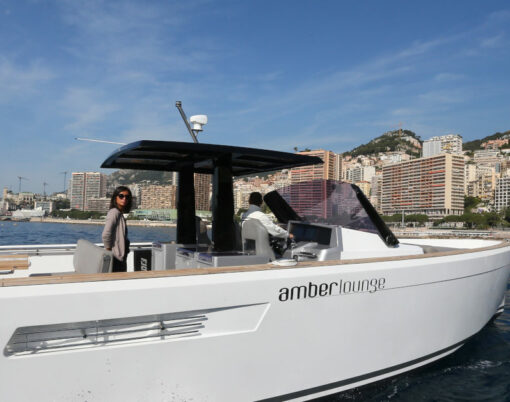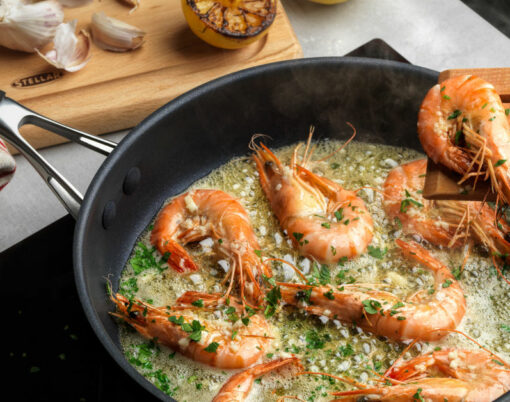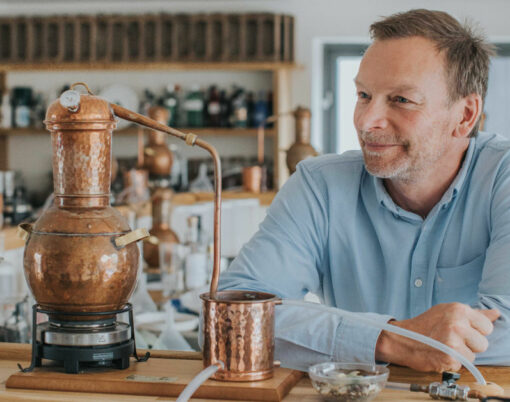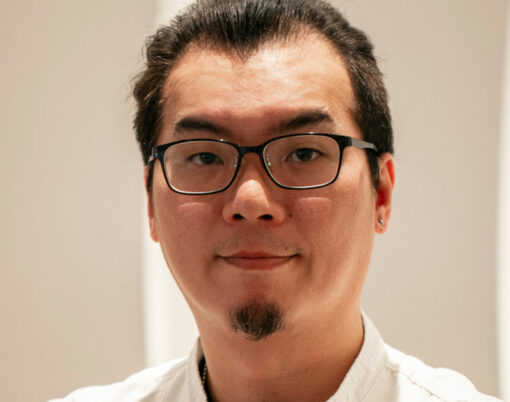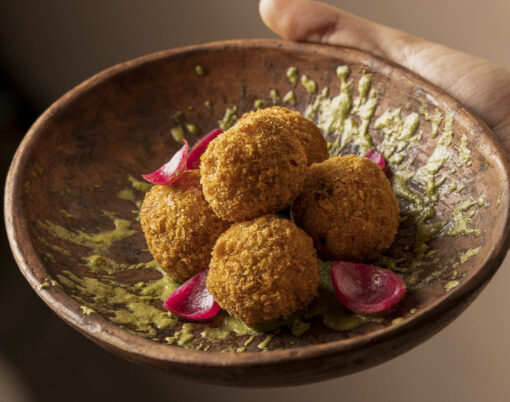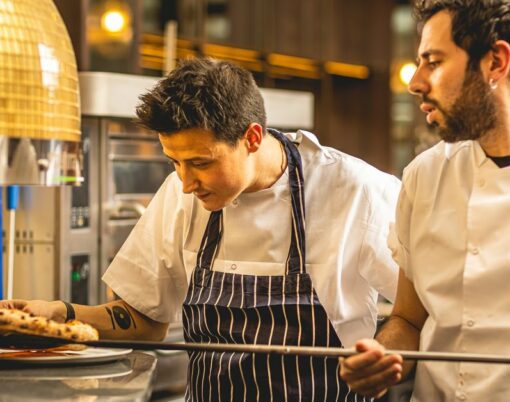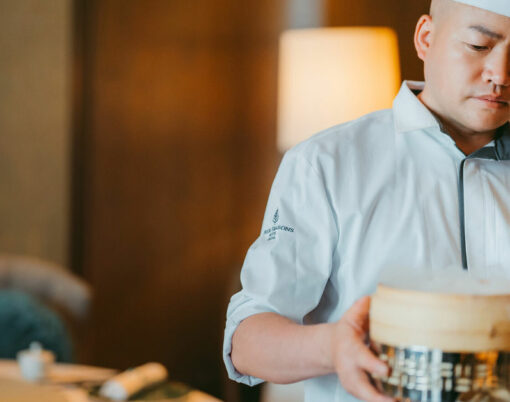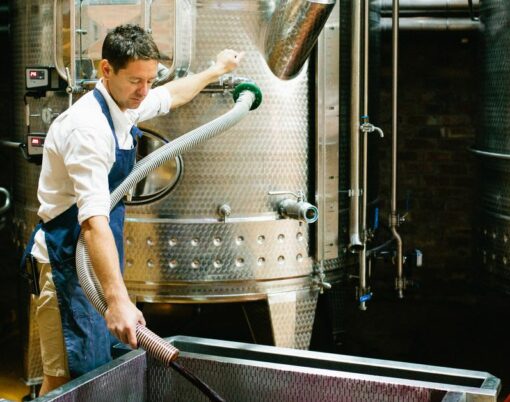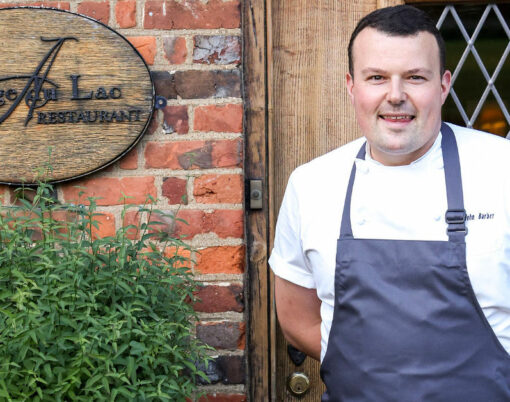“All of us who work in the industry know that when the chef or GM is your friend, the whole dining experience is taken to another level. It’s the access to the people, and the human connection that makes it special,” says James Murray, the general manager of inHouse London, the global members network that bridges the gap between restaurants and their most loyal customers.
Started in New York in 2016 by Daniel Humm’s former head maître d’ Benjy Leibowitz, the London launch marked the group’s first foray overseas. “We couldn’t be more excited to be expanding to London; the dining scene is easily one of the most exciting in the world right now, and we’ve been so warmly welcomed already by an incredible group of restaurant teams. More than anything, we feel very lucky to have an opportunity to contribute to a vibrant dining culture across the Atlantic,” says Leibowitz.
I was invited to celebrate inHouse London’s launch in January at the iconic Quo Vadis, an inHouse member. Canapés included a bite-sized version of Jeremy Lee’s famous smoked eel sandwich and snacks by members Hopper’s and the Quality Chop House with wine by Noble Rot. Bringing a city’s restaurant community together is at the core of what inHouse does, said Leibowitz, during his welcome speech.
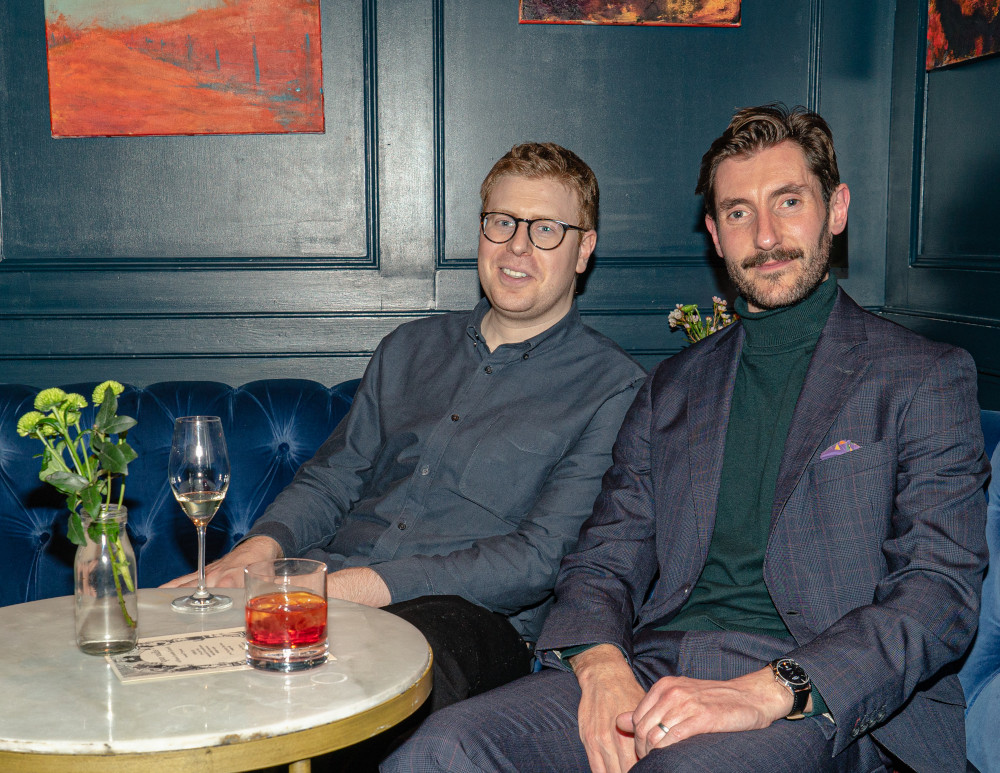
With guests ranging from local journalists, to chefs, restaurant owners, and front of house professionals, the evening truly showed how hospitality is about more than just the food on the table, but about those who gather around it.
I spoke with James Murray right before the launch to hear his thoughts on building a community of restaurant lovers and what his most embarrassing moment working the front of the house was.
How did you get started in the hospitality industry? Could you tell me more about the journey you went on to get to where you are now?
I’m originally from the Wirral, Cheshire. My mum was a fantastic baker. She supplied the cafés and art galleries of Liverpool and Chester, and my late dad had dreams to have his own pub and a penchant for throwing raucous dinner parties every weekend. It was his love of food and wine that first got me interested. My first job in hospitality was at The Ship Inn, Parkgate, pulling pints.
My initial journey after school took me to New Zealand, firstly on a gap year, then to study Hospitality Management at Otago, which is close to my favourite wine Central Otago. Upon returning to the UK, I decided to explore another love: acting. I was fortunate enough to take part in some lovely West End shows and tours, having done a theatre post grad diploma here in London.
I then found my true calling at the Markham Inn, Chelsea, starting as a waiter between acting jobs before taking over as maître d’. I decided that restaurants were my true calling after all and I joined the opening team at Holborn Dining Room at Rosewood London as head maître d’ and progressed to assistant general manager.
We took a brief hiatus to Manchester to support my wife’s family, and I worked as food and beverage director for King St Townhouse. We then decided to move back to London and I joined The Clove Club as restaurant manager. After a year, I created and moved into a role with the group’s people and development team.
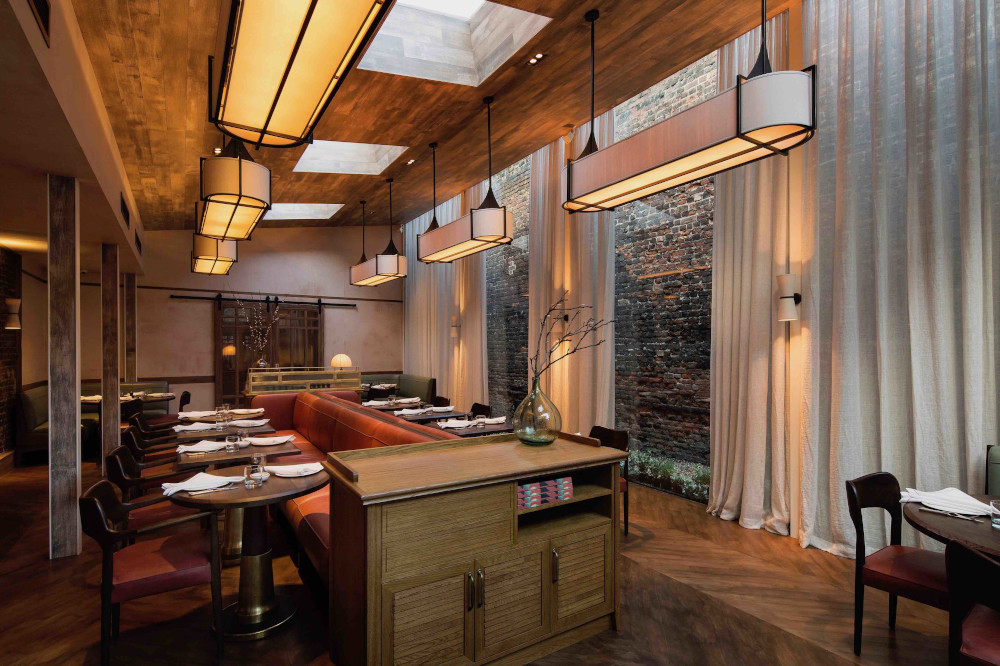
What is one of the biggest misconceptions people have about hospitality?
That it isn’t a real career choice. I am one of many, many people who have made a very conscious decision to work within this industry. It is so rewarding; no day is the same, it keeps you on your feet – and on your toes, to mix metaphors — and you meet the most interesting, fun, lovely, intelligent, skillful and hard working people you could ever hope to. It is also incredibly varied; when I was starting out, there was no way I’d have ever expected to be running a program such as inHouse,
What makes the London dining scene so unique?
Its cultural variety. We are so lucky to have some of the most amazing chefs in the world in this city, from all corners of the globe, representing both their own food cultures, but also British chefs showcasing the global influences that they have come to love. All of this is underpinned by an incredible supply chain of producers who are the unsung heroes of the restaurant scene; it’s vital that we support responsible farming here in the UK.
Additionally, I can’t not mention the characters of the front of house teams across the city; for me, experience is made by how you are treated at the table. It’s very simple, if you are welcomed as if the team are bringing you into their home, then you will never fail to have a good time. We have some of the best managers and teams you could hope for, who truly care about their guests, right here in London.
What are some of the most important lessons you learned working at The Clove Club?
Attention to detail. I love that feeling of preparedness as you head in to service. Family. When you are working to that level of care, your team become family, as trite as that sounds. I always looked to lead my team with a smile, however challenging things got. We’re there to give people a good time; if your team is happy, your guests are happy.
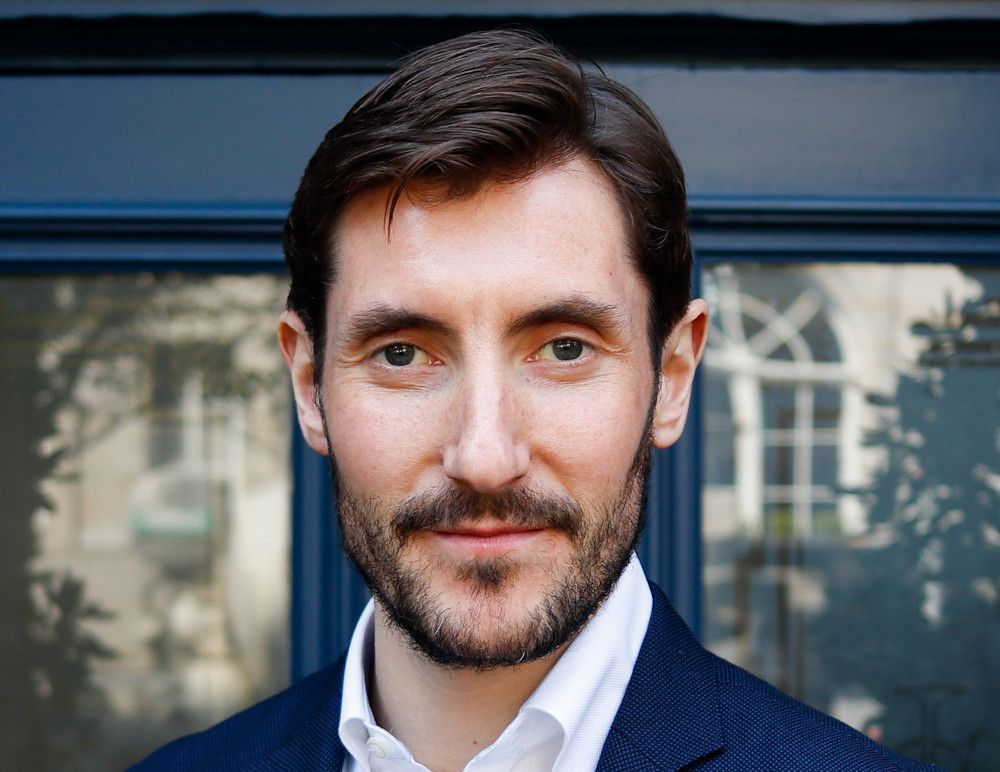
Can you share one of the most embarrassing things that has ever happened to you whilst on the job?
Whilst at Rosewood London, in the midst of a very busy Saturday night, the owners of Rosewood Hotels were dining in the restaurant — an important occasion. Part way through service, someone managed to trip over the stand holding their wine, kicking it over, breaking the bottle and sending ice and water everywhere.
Of course we jumped into action to clear the mess, with me getting there first to apologise to the table. As I was bending over, mopping the water up with towels with my back to the guests, my trousers split straight down the seam. I decided it was time for me to cut my losses and hide in the office for the rest of the evening.
How important is it to build a sense of community within the restaurant world?
It is everything. We like to say at inHouse: “All boats rise with the tide”. We want our restaurants to celebrate in each other’s continued success and to share the best regulars. We love the way that restaurants always help each other out in a pinch, whether that is lending each other linen or re-housing a birthday party when a private dining room gets flooded. We believe that hospitality is people and people are community.
Could you tell us more about the concept behind inHouse?
As I’ve already spoken about, we set out with the mission to enable the best restaurants to share their best regulars. We work with restaurants that are ‘best in class’, and send them the best guests who love restaurants and want to support the dining scene.
We keep our members clued up on the goings on in the industry through an event series, our app, website, and weekly newsletter. We have a bookings platform that allows our members access to not only the best restaurants, but also the specific teams behind each member restaurant so that when they go in, they are ready to become that restaurant’s best new guest.
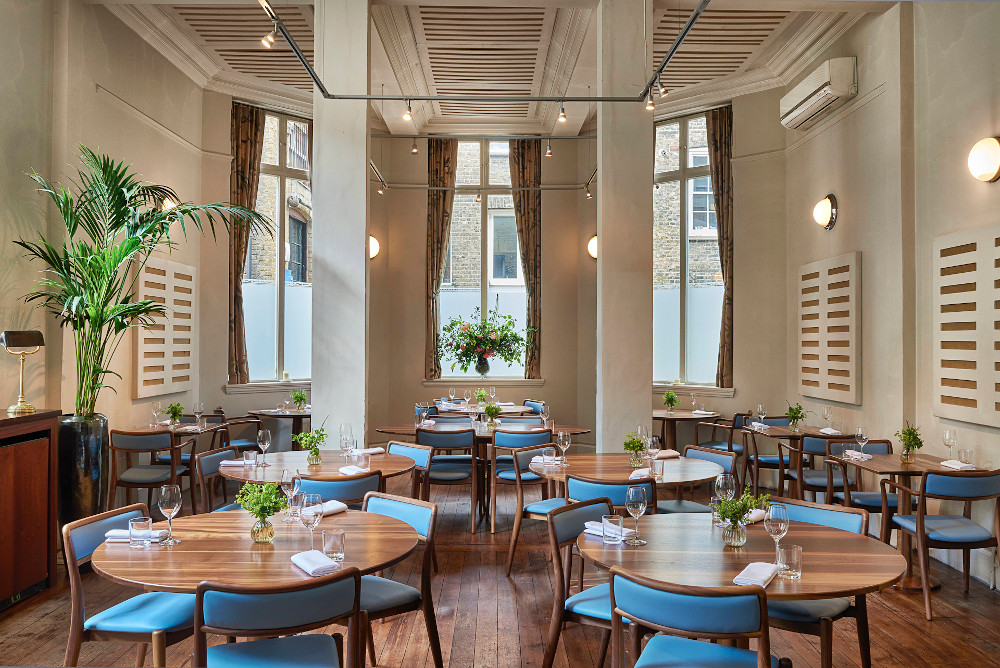
Why was London the next logical place to launch inHouse?
We aspire to be a global network. After a great three years in New York, London was the logical next step on that journey because of the calibre of restaurants, appetite of London diners, and our connections throughout the industry. All of which allow us to work with such a fantastic group of restaurateurs.
What are some of the main differences between top chefs 10 years ago compared to the present day?
There is no hiding from the fact that restaurants are a demanding place to work. As a chef, it is becoming more competitive to attract the best talent into your kitchen. I think that over the last decade chefs have realised that and are now, for the most part, beginning to work to ensure that they are creating kitchens that are inclusive, fair, safe environments where young chefs can learn and grow within. This is refreshing to see; however, it is only the beginning. We will face bigger recruitment challenges as we become a more insular country, without the incredible talent from the EU to draw from.
Which rising star chef do you currently have your eye on?
It’ll be exciting to see what Luke Selby (ex-Hide Above) does next, following his residency at Mortimer House. Outside of London, I’m excited to see Dan Smith continue his success at The Fordwich Arms.
Friends are in town for the weekend. Where would you send them for: brunch, dinner, drinks?
A tough question, given the array of options, so you’ll have to allow me some creative license. Brunch: Rochelle Canteen, Dinner and drinks: A drink and a snack at St John, followed swiftly by a bowl of pasta at Luca. Take a good walk to Soho with a stop en route at Noble Rot for a glass of wine, then it would be small plates at The Palomar and cocktails at Quo Vadis.
Factbox
inHouse London membership is available at a limited time London launch rate of £895
To apply and see a full list of member restaurants, visit their website: inhousenewyork.com/membership
Note – The main image features the inHouse London team of Giorgia Tracy, James Murray, Sophie Orbaum and Benjy Leibowitz












